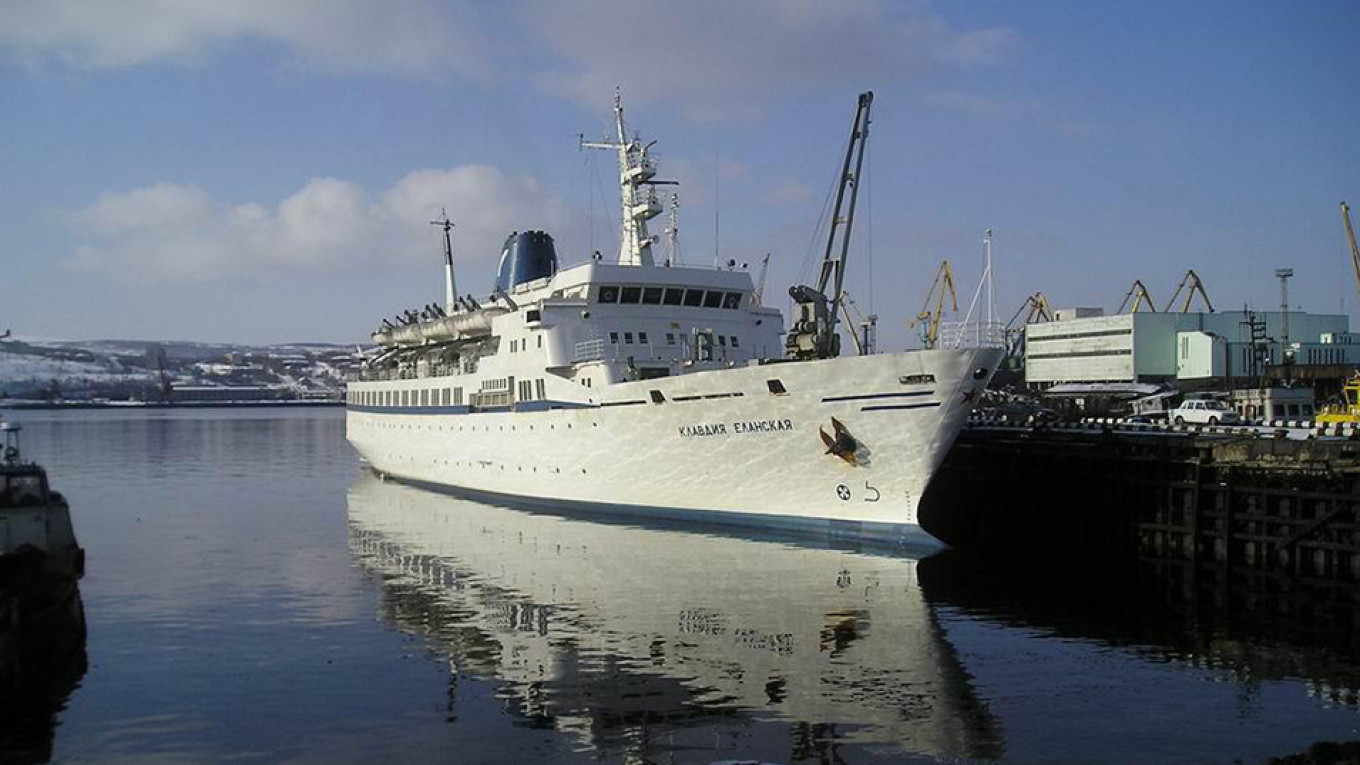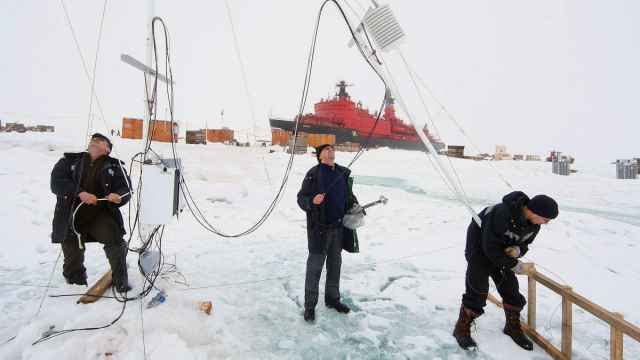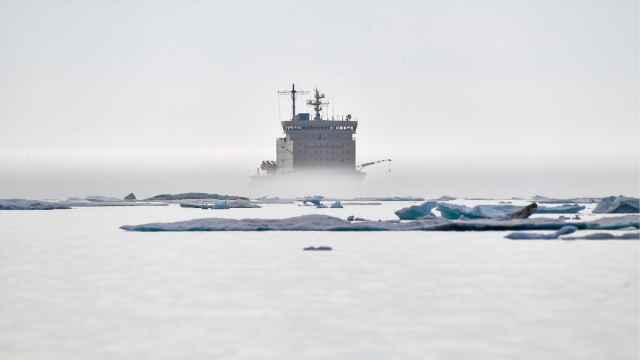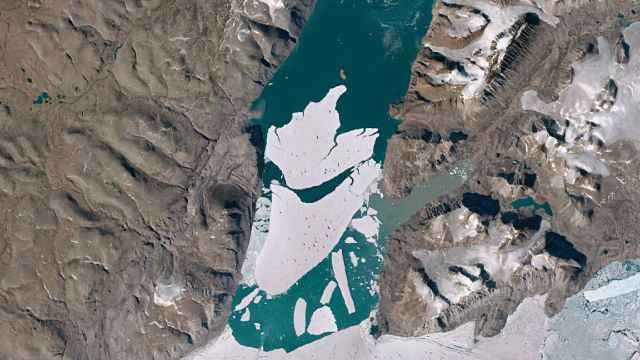The Klavdiya Yelanskaya motor vessel was built in Yugoslavia in 1977. Since then, it has sailed along the coast of the Kola Peninsula bringing passengers to and from remote towns and villages in the area.
For many, it has been the only connection to the rest of the country.
But sailings have been increasingly irregular and cancellations became the rule rather than the exception. The Murmansk Shipping Company has for years been on the verge of bankruptcy and the Klavdiya Yelanskaya has been subject to decay and mismanagement like the rest of the company's fleet.
On July 10, the regional government said enough is enough and transferred the subsidized sailings on the route to a new operator. From now on, it will be the Northern Shipping Company, a company based in Arkhangelsk, that sails the Klavdiya Yelanskaya.
The decision to deprive the Murmansk Shipping Company of the route is connected with the company’s economic difficulties and its inability to cope with obligations laid down in its agreement with the regional government, deputy governor Olga Kuznetsova says.
“A two-month agreement on sailing on this socially important route has now been signed with the Northern Shipping Company,” Kuznetsova says. “And if any extraordinary situations develop, we have an alternative solution that has been tested before, namely: the transportation of passengers by helicopter and goods by cargo vessels.”
In June, the passenger liner was reportedly undergoing repair works and passengers were transported to and from Murmansk by helicopter, regional governor Andrey Chibis confirmed on social media.
The Klavdiya Yelanskaya has for years sailed from Murmansk to the town of Ostrovnoy weekly and to the further settlements on the White Sea coast of the Kola Peninsula. For about 2,000 residents of Ostrovnoy, the ship is a key lifeline to the rest of the country.
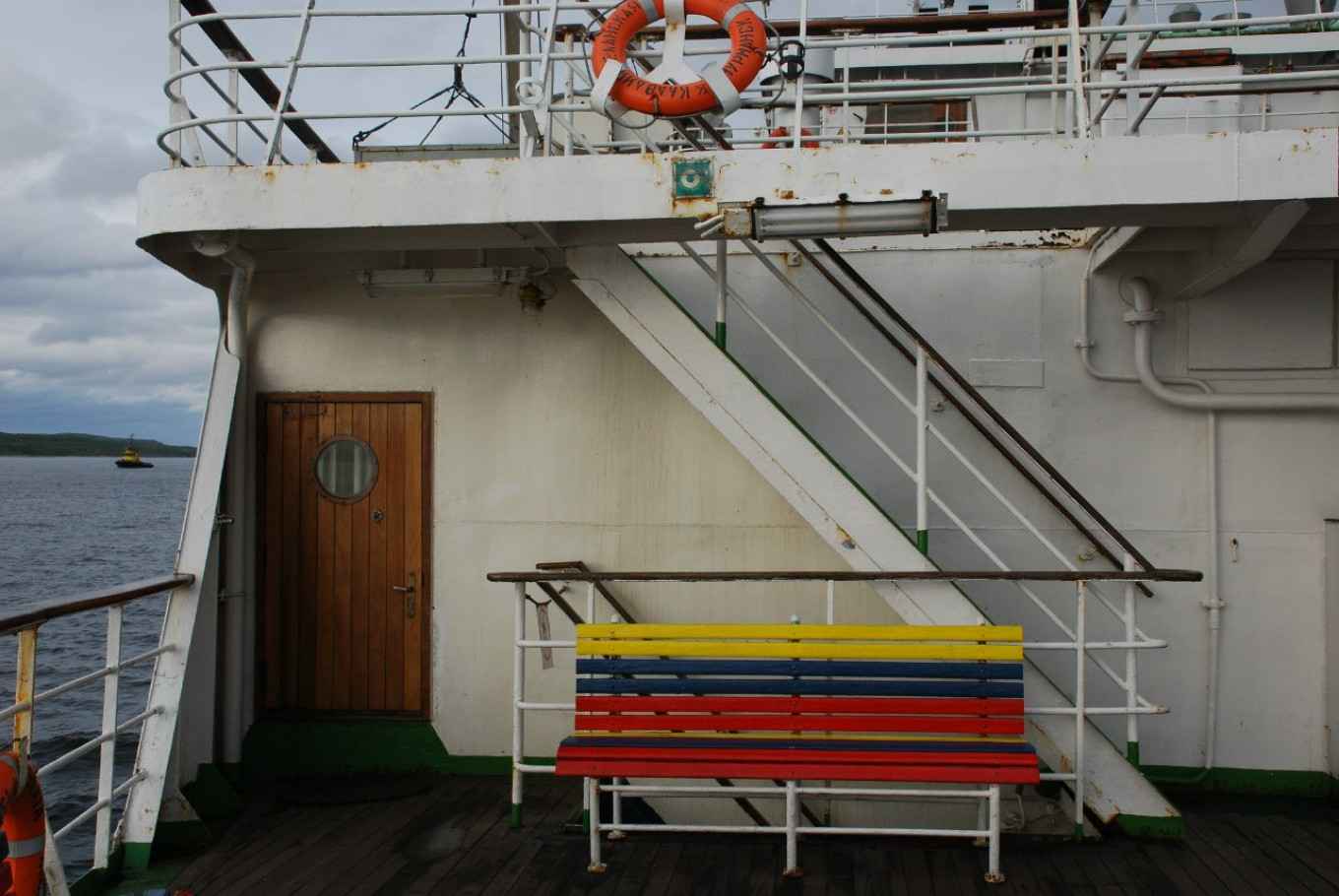
According to the Murmansk government, the frequency of trips will remain unchanged after the change of the operator company.
The Klavdiya Yelanskaya is one of eight vessels of its kind built in Yugoslavia for the Soviet Union in the 1970s. Three of the ships ended up in the Kola Peninsula. They all carried names of Soviet theater actresses. Klavdiya Yelanskaya was the theater and movie star who won a wide range of Soviet cultural awards for her achievements, including the prestigious Stalin Prize in 1952.
Like its sister ships, the Klavdiya Yelanskaya has ice-class standards and can operate in high Arctic waters, including along the coasts of Franz Josef Land archipelago.
It is 100 meters long, has 51 passenger cabins and can carry up to 220 passengers.
It is a run-down ship and Governor Andrey Chibis this week admitted that the technical standards “have seen better days.”
The Murmansk Shipping Company was once a leading company in the Russian Arctic and the fleet crisscrossed icy Russian waters with both people and goods. Today, the situation for the once-proud company stands in cruel contrast to this.
The company has no cash for the needed face-lift of the Klavdiya Yelanskaya and other parts of the fleet. Over many years, major debts have accumulated, and several creditors have repeatedly initiated court cases.
Several company vessels have lately spent many months in foreign ports arrested for not paying bills. Among them was Novaya Zemlya, which for a long time was locked up in Denmark, the Kuzma Minin, which had similar problems in the Netherlands, and the Pomorie in New Orleans.
A Message from The Moscow Times:
Dear readers,
We are facing unprecedented challenges. Russia's Prosecutor General's Office has designated The Moscow Times as an "undesirable" organization, criminalizing our work and putting our staff at risk of prosecution. This follows our earlier unjust labeling as a "foreign agent."
These actions are direct attempts to silence independent journalism in Russia. The authorities claim our work "discredits the decisions of the Russian leadership." We see things differently: we strive to provide accurate, unbiased reporting on Russia.
We, the journalists of The Moscow Times, refuse to be silenced. But to continue our work, we need your help.
Your support, no matter how small, makes a world of difference. If you can, please support us monthly starting from just $2. It's quick to set up, and every contribution makes a significant impact.
By supporting The Moscow Times, you're defending open, independent journalism in the face of repression. Thank you for standing with us.
Remind me later.


